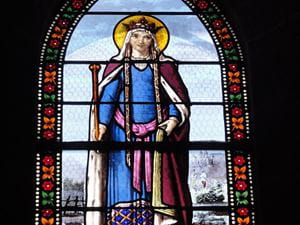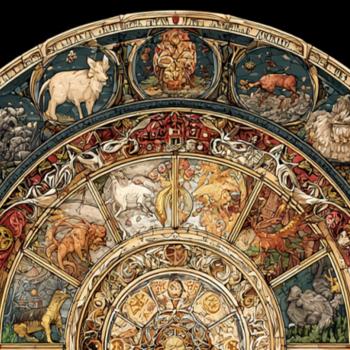
Saints are the human heroes of the Roman Catholic Church. During their time on earth, they were ordinary people who sinned just like everyone else but grew to live lives of holiness that were dedicated to serving God, helping others, and spreading the Gospel. During their lifetime, they had “heroic virtue” and displayed the four cardinal virtues of prudence, temperance, fortitude, and justice as well as the theological virtues of faith, hope, and charity. That does not mean that saints were perfect Christians.
Saints were all once ordinary people, which is part of the power of their stories. The most ordinary, most wretched, and most guilty can all find their way to the light and become saints. If they can turn their lives around, the question goes, why not me? As one French writer put it, “The only real sadness, the only real failure, the only great tragedy in life, is not to become a saint.” The Roman Catholic Church teaches that all the faithful are called to be saints, and that those who attain heaven, both those known to the Church and those unknown, are in fact saints.
The Roman Catholic Church also has a process for recognizing and naming those saints who are models of life and virtue. The Church encourages devotion to these saints who, dwelling in the presence of God are still able to pray for those of us who remain on the earth. So, when Catholics “pray to a saint,” they are actually asking the saint to intercede for them and to help them as they pray to God. It is not unlike asking a friend to pray for you, though the saints are nearer to God than most earthly friends.
The tradition of praying to the saints reflects a larger Catholic belief: the communion of the saints. While Protestants believe that the dead in Christ are separated from the affairs of the living, Catholics believe that all believers, both those who live and those who have died, share a unity in Christ. This makes our prayers for the dead helpful, and the intercession of the saints for the living equally helpful. The Catechism of the Catholic Church teaches that “our prayer for [the dead] is capable not only of helping them, but also of making their intercession for us effective.”
Certain saints are known as patron saints. These can be patron saints of locations—churches, cities, countries—or patron saints of professions, circumstances, or physical conditions. These associations stem from long traditions of praying for protection, for support or assistance, or for healing. For example, St. Joan of Arc is considered one of the patron saints of France; St. Jude the patron saint of lost causes; and St. Christopher the patron saint of travelers. It is natural for most Catholics to pray for help from a patron saint whose life demonstrated some special interest in these causes.
3/25/2021 9:41:35 PM









